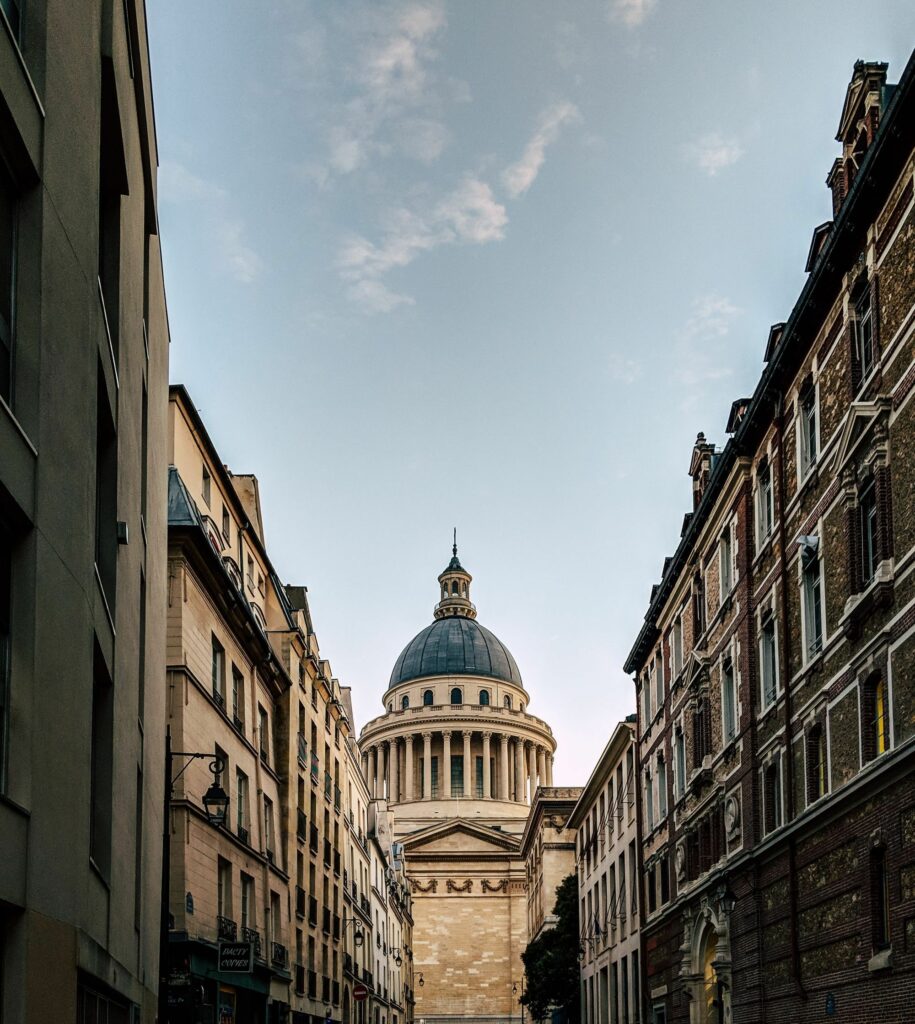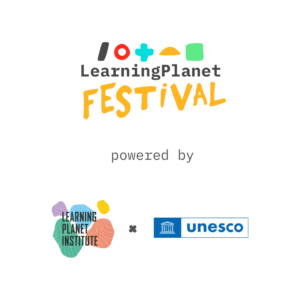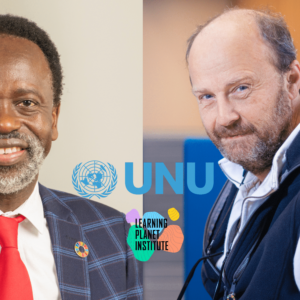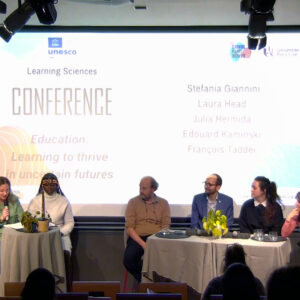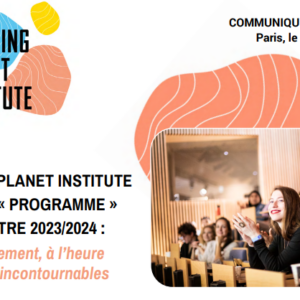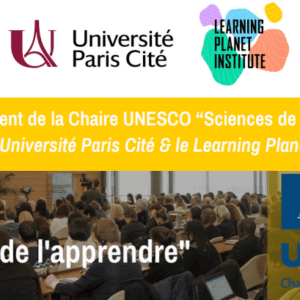François Taddei, Director of the Learning Planet Institute, INSERM researcher, professor at the University of Paris, upcoming book Game Changing: Together Solving the Challenges of our Time, due out January 2022 published by Calmann-Lévy
For anyone who’s been to Paris, you likely didn’t miss the Panthéon, a big neoclassical building, dome and all, that looks down from a hilltop in the Latin Quarter. The inscription over the portico reads Aux grands hommes la patrie reconnaissante, “A grateful nation honors its great men,” the sole hint you’ll get that housed within the building’s crypt is a national mausoleum containing the remains of some of France’s greatest scientists, military commanders, writers, activists, and thinkers since the Enlightenment. Today we’re reminded once again just how outdated and unfitting that inscription is, as the remains of Josephine Baker are officially transferred to the mausoleum, the sixth woman to enter the Panthéon and the first ever black woman.
The ancient Greek pantheon was the set of their major gods. Revolutionary France, newly emboldened after storming the Bastille and guillotining the monarchs, wanted to erect a physical pantheon to honor the secular equivalent of its gods, i.e. the great thinkers of the moment. To paraphrase Hegel, who was a young man during the French Revolution, you make history when you’re the first to articulate something humanity needs but doesn’t know it yet. Josephine Baker was not only a world-class artist but an intrepid French Resistance agent during WWII and a leading activist voice for racial harmony. Whenever another figure gets reinterred in the Panthéon, the power of collective memory grows and our sense of Enlightenment identity gets renewed.
But who decides who belongs in the Panthéon? The short answer is the French president, but the political mood of the moment factors in heavily, which is to say presidents make the decision out of a feeling of pressure from society. Exhuming someone’s body to be placed in a national mausoleum cannot be taken lightly, and in French politics there’s perhaps not a more presidential action one can make in office because the political message is without equal.
The remains of Josephine Baker now rest in the Panthéon. The political message is one of art, inclusion, and liberation. She will be the sixth woman to be laid in the Panthéon, 26 years after the first woman ever was inducted, Marie Curie—that’s six women to 70 men.
Heroes, Regardless of Gender
The roughly 14-to-1 ratio just goes to show you how unrealistic it is to expect a tradition that started before Napoleon became Napoleon to keep pace with modern times. Nonetheless, it’s important to talk about the great figures who inspire us, and I’m not talking about at the state level but in our own personal lives. In French it’s becoming popular to talk about such-and-such person as being in your “personal pantheon,” meaning that person has marked your life and changed the way you think. Said person doesn’t necessarily have to be deceased, and though there’s rarely full consensus from your audience when you name someone in your pantheon, it always sparks a good bit of repartee on culture and ideas. While the neoclassical Panthéon stands there in brick and mortar on a hilltop, I somehow find the personal pantheon more concrete and even more democratic.
The fact is that the number of heroes in our time serving the common good and countering adversity with generosity is vastly greater than 76. What’s more is that nothing could be further from their minds than being honored in a national mausoleum. Perhaps you’re familiar with Israeli honorific “Righteous Among the Nations” reserved for non-Jews who risked their lives during the Holocaust to protect Jews from extermination. Nicolas Winton was one of them, referred to as the “British Schindler” for conducting the rescue of 669 children, most of them Jewish, the night before the Nazis invaded Czechoslovakia. And he didn’t like to talk about it much in his lifetime. “There are all kinds of things you don’t talk about, even with your family,” he once said. “Everything that happened before the war actually didn’t feel important in light of the war itself.”
Winton died in 2015, but he was certainly not the last of his kind. Martin Maindiaux is another dauntless and selfless individual in the Winton vein. He runs the non-profit Enfants du Mékong (“Children of the Mekong”) in southeast Asia raising money to build schools and fund sustainable-development projects for impoverished children and communities along the Mekong River. Another is Dominique Pace, who in 1992 co-founded the non-profit Biblionef, which operates in over 90 countries providing impoverished children in slums and rural areas with free books. Frédérique Bedos is yet another, who founded The Imagine Project to help create professional-grade documentaries for big-impact, low-budget initiatives that deserve more visibility than they can afford. Their work helps raise awareness about people like Sister Ventura, a Mexican sister of charity who for the past thirty years has been working with pygmy populations in the northern Congo as their survival is threatened by the country’s rapid urban development.
Another altruistic filmmaker is director Flore Vasseur, whose documentary Bigger Than Us follows young people from different countries all over the planet punching well above their weight as they pursue major justice initiatives at the grassroots level. The website for the film is far from a gratuitous promotional device but rather offers visitors an opportunity to connect with the initiatives showcased in the film and become embedded in a global activist community. Memory Banda, a young Malawian girl, is one of the many heroes featured in the film. At the age of 22, she defied her community’s local custom of raping pubescent girls to initiate them to womanhood by getting her country to outlaw the practice and even raise the age of consent to 18. If you think you’re too small to start a revolution in your own community, watch Derek Siver’s TED Talk on how to start a movement and you’ll see it’s easier than you think to change the landscape and shape the future.
Sharing Stories
Whether it’s Memory’s or Winton’s story, they inspire us because their work goes beyond their immediate geographic and political context to say something greater about humanity—that in the face of so much evil, when the smallest among us raise our heads from the sand, revolutions can happen. National mausoleums are fine and all, but it’s important for us to have a living pantheon in our hearts that we can share with those around us. A necessary reminder here is that, unlike the Greek pantheon, ours are secular pantheons of human beings whose work and lives can and should be held to the utmost scrutiny. Infallibility has no place in a democracy.
People enjoy researching their genetic ancestry. Building a personal pantheon is a way of tracing your intellectual ancestry, understanding where your mind and attitudes come from and on whose shoulders you stand to see farther than they ever could. Take the time for private reflection on these figures, but your personal pantheon is by all means something to be shared and celebrated with the communities you’re a part of, and those communities can even construct their own pantheons. Religions have temples and relics dedicated to saintly figures, sports teams have memorabilia and halls of fame for great players; we need our own spaces and occasions for celebrating the great figures in our own lives.
The United Nations may have indirectly provided us with an opportunity to do just that with their designated days for celebrating social values. The one you’re likely to be most familiar with is March 8th, International Women’s Day, but there are nearly 200 others, occasions to come together and build communities around different issues. Most recent was World Children’s Day on November 20th. March 20th is the International Day of Happiness, an opportunity not just to be happy but to celebrate people who make you happy. Most of these days of celebration come and go without our noticing because there’s no formal celebration organized around them, but we can take these days of awareness-raising and make them our own celebrating people from our pantheons, people who pushed us to dream bigger, to make a difference, to help the disenfranchised, to be the voice of the voiceless, to build communities, to start movements, etc. As France celebrates the first black woman laid in the Panthéon, it’s important to remember that naming who’s in your pantheon isn’t just an icebreaker in conversation; it’s a declaration of your politics and your intellectual heritage.
To get started building your own pantheon, how about joining a collaborative online pantheon where people come together to celebrate notable figures who inspire them? The site linked above is an online space where you can build a pantheon with a positive online community, and because it’s built by the many, it can only be mutually enriching for yourself and others involved. We’re still looking for an inscription for this pantheon, so what do you think of the following options:
“A grateful global citizenry honor those who pushed the boundaries of what’s possible”
“A grateful human race honors its greatest minds”
“A grateful planet honors its collective intelligence”
Click this link to vote for one of these options or provide another suggestion in the text box at the bottom of linked page.
More on this topic:
Jacqueline Novogratz – Inspiring a life of immersion
This article was originally published by The Conversation, read it in french.
